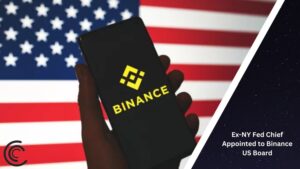Key takeaways:
- Assembly man Timothy Grayson presented the Digital Financial Assets Law to safeguard Californians from financial hardship and promote responsible innovation.
- The CFC is attempting to license and oversee companies dealing in crypto and digital assets for the second time.
Among the bills sponsored by the Consumer Federation of California (CFC), a nonprofit organization dedicated to advocating for the rights of consumers, is a bill that seeks to authorize and oversee the operations of crypto exchanges.
Assembly member Timothy Grayson sponsored the Digital Financial Assets Law, a bill requiring governmental control of cryptocurrency enterprises, in an effort to shield Californians from financial hardship and promote responsible innovation. According to Grayson, the next logical step for the cryptocurrency industry is licensing, and he continues:
“And it is equally clear that until we take that step, Californians will continue to be vulnerable to prevalent and preventable financial scams.”
The CFC is attempting to license and oversee companies dealing in crypto and digital assets for the second time. There was a bill (AB 39) that was presented by the governor’s staff in 2022, and that was later introduced by the legislature in 2023 but was vetoed by Gov. Gavin Newsom.
In the event that it passes, the bill will take effect on January 1, 2025, and it will forbid people from cooperating with cryptocurrency enterprises until a specific set of requirements are met. In order to provide regulatory clarity and investor safety, California’s AB 39 will grant licenses to cryptocurrency businesses under the jurisdiction of the California Department of Financial Protection and Innovation. A statement from Robert Herrell, the executive director of the CFC, in explaining the reasoning behind the move was as follows:
“The bankruptcies and scams of the past year only bolster our collective interest in ensuring basic and foundational consumer protections in this marketplace, which has up to now looked like the Wild West in terms of ‘anything goes’ behavior by key players in the cryptocurrency industry,”
While Californian politicians are trying to introduce crypto regulations, the California Department of Motor Vehicles is test-driving a private blockchain called Tezos to digitize both car titles and title transfers on behalf of the California Department of Motor Vehicles (DMV).
According to Ajay Gupta, the California DMV’s chief digital officer, the organization hopes to finish dealing with the shadow ledger in the next three months.











